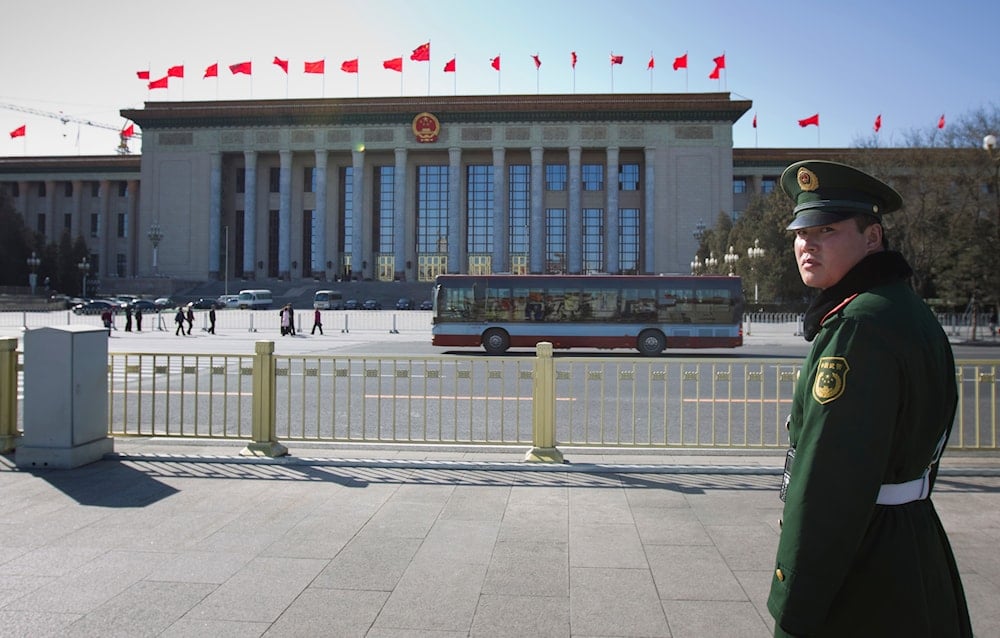US military is more confrontational, posing security threat: China
The Chinese Ministry of Defense asserts that the US military strategy has become more confrontational, serving to maintain unipolar hegemony and facilitate violent power changes.
-

A paramilitary police officer stands guard in Tiananmen Square with the Great Hall of the People in the background in Beijing, on March 1, 2011. (AP)
Chinese Defense Ministry spokesperson Zhang Xiaogang emphasized that the US military strategy has grown more confrontational and now poses the greatest threat to global security.
In a statement on WeChat, Gang said, "Facts show that the US military strategy has become more confrontational and offensive, and the US has become the biggest destroyer of the international order and the biggest threat to global security," commenting on the Pentagon's report on China's military development.
He noted that the United States leverages its military superiority "to sustain unipolar hegemony, enforce violent power changes, and provoke color revolutions."
Gang emphasized that in recent years, Washington has conducted illegal military operations in Syria, Iraq, Afghanistan, and other countries, resulting in severe humanitarian disasters, the deaths of hundreds of thousands, and the displacement of tens of millions.
Pentagon: China is heading towards possessing 1,000 nuclear warheads
A few days ago, the US Department of Defense, the Pentagon, announced in its annual report on China that the Chinese army had nearly tripled its arsenal of nuclear warheads since 2020, and was on track to possess 1,000 operational warheads by 2030.
Beijing responded that it “always adheres to a nuclear strategy for self-defense” and maintains its nuclear capabilities at the minimum required for national security.
China declined on November 20 a request for a meeting with US Defense Secretary Lloyd Austin during a conference in Southeast Asia, underscoring ongoing tensions between the defense establishments of the two nations, CNN reported.
The media outlet said that Austin had sought to engage with his Chinese counterpart, Dong Jun, at the ASEAN Defense Ministers’ Meeting-Plus in Laos, claiming that the meeting was part of the US' continued efforts to sustain military communication channels with China.
However, China rejected the proposal, citing a recent US arms sale to Taiwan as the reason, according to a senior defense official accompanying Austin in Laos.
The arms sale, approved by the US weeks ago, totals $2 billion and includes advanced surface-to-air missiles—marking the first such provision to the self-governing island. China swiftly condemned the deal, vowing to take "resolute countermeasures" to protect its sovereignty.

 2 Min Read
2 Min Read








